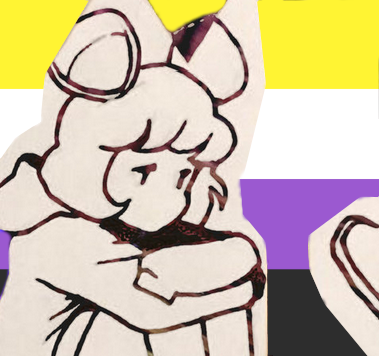Introduction
Kill the cop in your head! Seek to understand for yourself why you do what you do. Redefine what is necessary behavior. So with masking, I reflected and realized I did it to feel safe and acceptable in 4 spheres: 1) the occupational sphere, 2) the general public (i.e. the store, about town), 3) with friends, 4) with myself. After a lot of reflection and with support from my partner, I was able to realize that I was extending the constraints of the most limiting sphere (#1) to all of the others. That is to say, I was more regulated than necessary to meet my desire for safety. To be more straightforward, I was able to see I could still feel safe and accepted when I unmasked. For me, that was the precondition.
Why Unmask
Extended metaphors and schema work really well for me. So I need to explain mine to explain why I unmasked. Your language or conception might differ, but I think the motivation is generally applicable. Overall I view my energy as bandwidth that is allocated to different thought processes, stressors, and the like. Certain things passively consume bandwidth. For instance, I have a physical disability that occupies about 5% of my bandwidth at all times, and more when I am managing it poorly. Or when i have many upcoming obligations but no calendar, I use bandwidth trying to keep my schedule in mind. Bandwidth not used passively is what is available for productive work, hobbies, interests, spirituality, presence and immediacy, creativity. Too much passive use creates a stress response in my body—this also uses up bandwidth and is a positive feedback loop. Consequently, I seek to minimize my passive bandwidth usage.
And masking uses up a lot of passive bandwidth! I joke and call it 'my affect chip'. Like I have different voices and personas for different settings. Some of them are even fun to inhabit. However, I do not need to be using that bandwidth up all of the damn time, especially when I am alone, with lovers, with friends. Letting go of masking in certain spheres has made my life overall more manageable, more pleasant, and has allowed me to be more present. Like there is a positive feedback loop with my overwhelm response, there has been a positive feedback loop with unmasking. Since I have more energy with myself, I am more present with myself and better able to handle disruptions and challenges; i.e. I am more resillient. It also leads to cute moments like last night where I woke up to get some water, walked into my clean kitchen, got excited that it was finally clean, and didn't repress myself from stimming like I did as a child when I was excited! I noticed what I was doing and that I felt very little shame about it, and that made me feel even better.
How to Unmask/How I Unmasked
- Determine why you mask, what need or desire is fulfilled by masking. For instance: safety (avoiding bullying), ability to meet expectations of employment context (still a safety need since capitalism necessitates work for survival), aesthetics, beauty standards, etc.
- Determine if the same need is present in all spheres in which you mask. For instance: Work, General Public, Family, Political Org, Distant Friends/Group Settings, Close Friends, Intimates, Self.
- Determine whether or what degree of masking is actually necessary to fulfill your needs. If you found multiple needs, especially if needs that necessitate masking are different between contexts, it is necessary to find the degree of masking you feel is necessary for each need-context pair.
- Determine what your masking behaviors are. Determine what needs they address or may be intended to address. Note: this will probably occur organically throughout this whole reflection. This step may be placed prior to step 3, too, depending on what feels constructive.
- Determine what masking behaviors are actually necessary in each context, and be liberated from the ones that are not. Most of the progress will come from this step, but the others are necessary for it to be effective.
Conclusion
Even if fully unmasking feels unsafe and unacceptable, we can normalize and embrace our beautiful selves for ourselves. Shame and guilt are the least useful feelings that exist. Thank them for pointing to an incorrect attitude or behavior and Let Them Go! Kill the cop in your head and liberate your mind!
If I had a dime for every time people had no idea "masking" has a neurodiverse context...
But man, "beliberated from the ones that are not" is not that easy. Still a very good post however.
Thanks! It's easy said and hard done for sure. I just spent a lot of time working in vain, and more time grasping my way towards this framework. My hope is that this structure is helpful to some; I abhor reinventing the wheel. Also a lot of time, I have had unexpected upsights reading 'how I overcame x' narratives and wanted to pay it forward.
@davel@hexbear.net @AntiOutsideAktion@hexbear.net OMG I so see how you thought this was about COVID! I changed the title to avoid further confusion.
I missed the context of the conversation entirely.
> I reflected and realized I did it to feel safe and acceptableAirborne viruses don’t care about your feelings.The reason we don’t step in front of moving trains is not because we’re afraid of trains, or because stepping in front of moving trains is socially unexceptionable.Also, you’re seem quite focused on risks to yourself, and not so much risks to others.This post is about masking in the sense of behaviors/coping mechanisms displayed by ND people in order to appear normal to the rest of society. It’s not about Covid.
This is about the concept of masking in the neurodiverse community. Presenting a false self to get along. Not physical masks
Check which comm you're in and read the post again. This is not about respirators.




